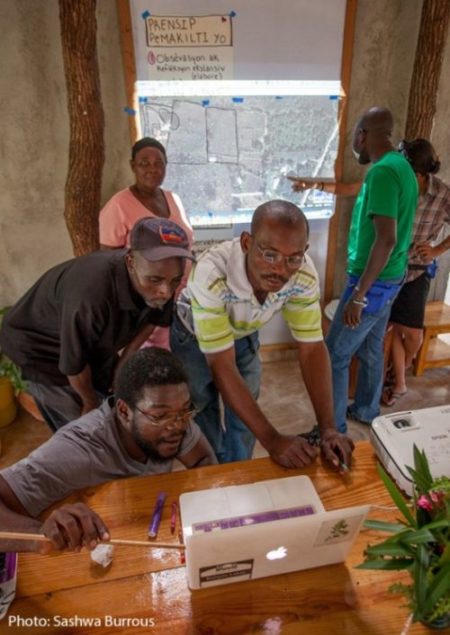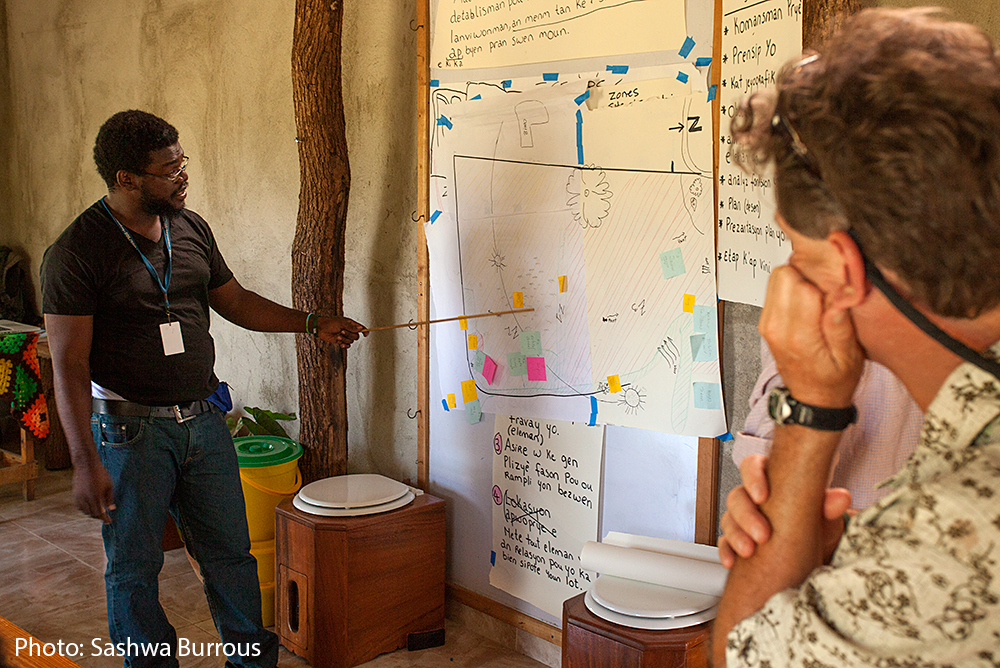
OAEC’s Collaboration with SOIL: Turning Waste into a Resource in Haiti
SOIL (Sustainable Organic Integrated Livelihoods) is a nonprofit organization based in Haiti that works to transform human waste into a resource by providing ecological sanitation and jobs for underserved communities lacking proper infrastructure. SOIL’s formal mission is “SOIL promotes dignity, health, and sustainable livelihoods through the transformation of waste into resources.”
OAEC trained several SOIL staff members in a PDC at the International Permaculture Convergence (IPC11) in Cuba. In 2014, OAEC met with Dr. Sasha Kramer (co-founder and executive director of SOIL) and facilitated a collective permaculture design process with SOIL staff to design the SOIL ecology center and offices in the North of Haiti.
OAEC also supported SOIL in a permaculture design process over 3 days at their Cap Haitien office, farm, and associated KOMOP properties. (KOMOP is a farm collective of SOIL staff members whose name is a combination of Komite = Committee and Opòtinite = Opportunity.) The goal of the permaculture design process was to facilitate staff through a design process for both the SOIL office property as well as the KOMOP property.
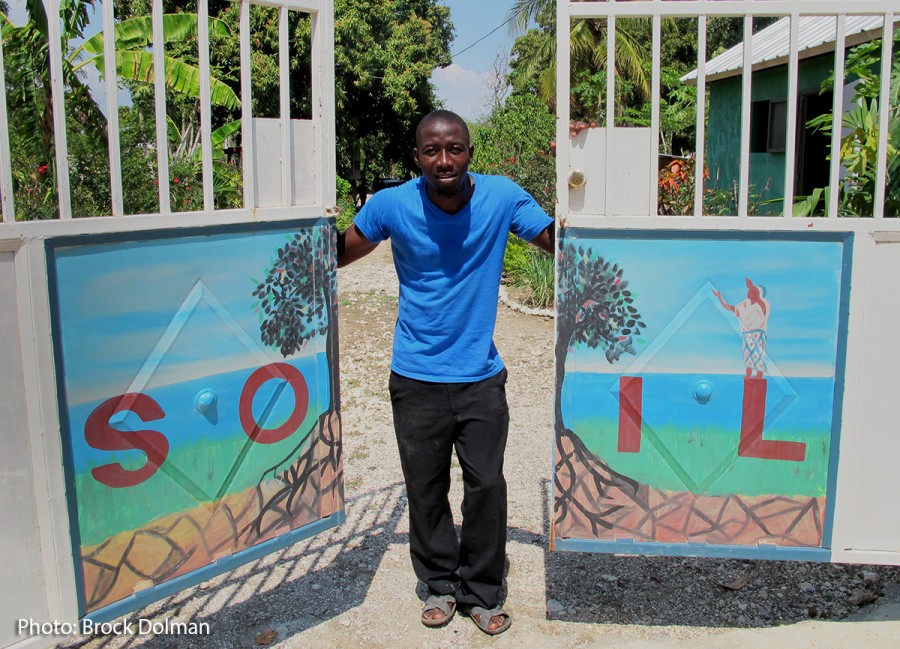
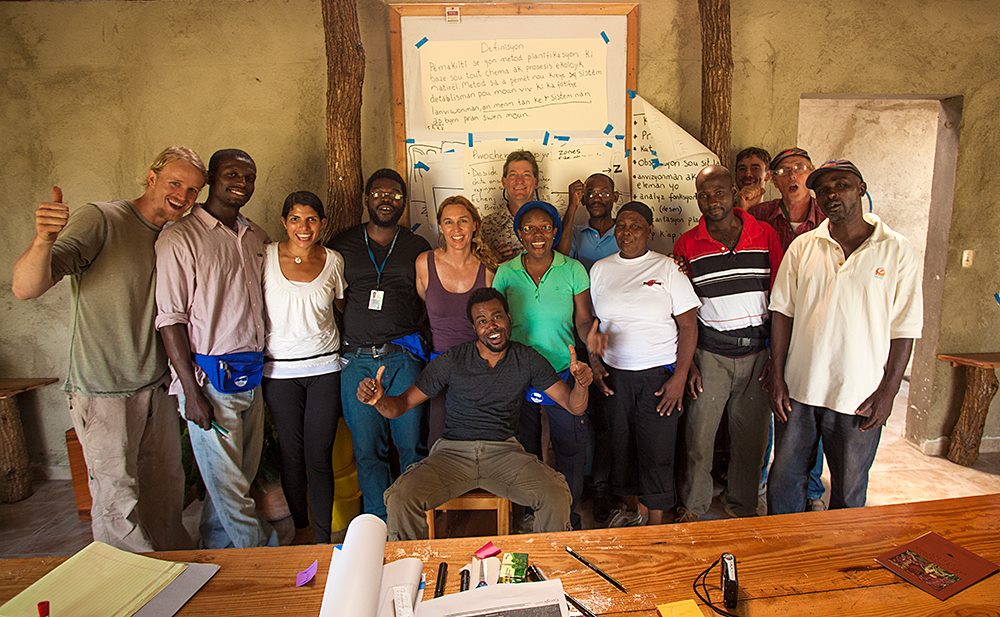
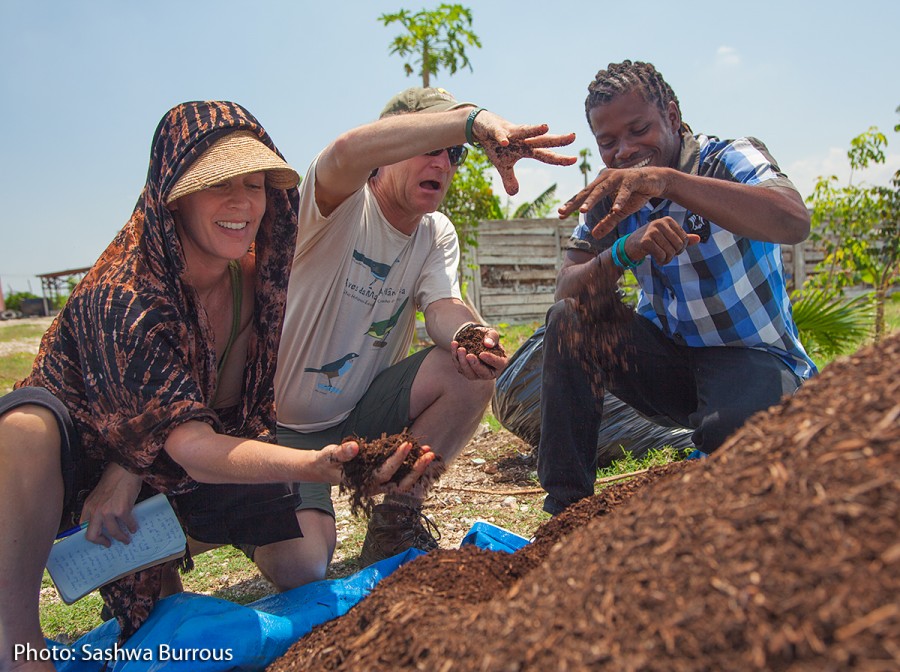
While we were in Haiti, SOIL consulted with OAEC about the best practices they have developed to collect, process, and research humanure composting systems. We visited the SOIL composting facility at the city dump in Twitye (the Port-au-Prince dump) and toured the SOIL collection and processing sites around Cap-Haitien to learn about the specifics of the humanure handling and thermophilic composting practices.
SOIL’s project of community-based composting toilets not only improves public health through water quality improvement and disease reduction, but also increases local economic sustainability through job creation and a valuable product — nutrient-rich soil.
Watch the video about this collaboration:
Through Resilient Community Design, the Occidental Arts & Ecology Center’s permaculture-based collaboration is supporting SOIL to transform human waste into resources.
Resilient Community Design is a facilitated process that builds the capacity of place-based communities to thrive by adapting to changed and changing ecological and social conditions over time. It enables groups to better address their social, cultural, ecological, and economic needs by deepening ecological understanding of their place, strengthening practices of self-governance through collaborative decision-making, and increasing social cohesion and personal welfare through collective work.
For more information on OAEC’s on-site Ecological Sanitation work right here at home:
